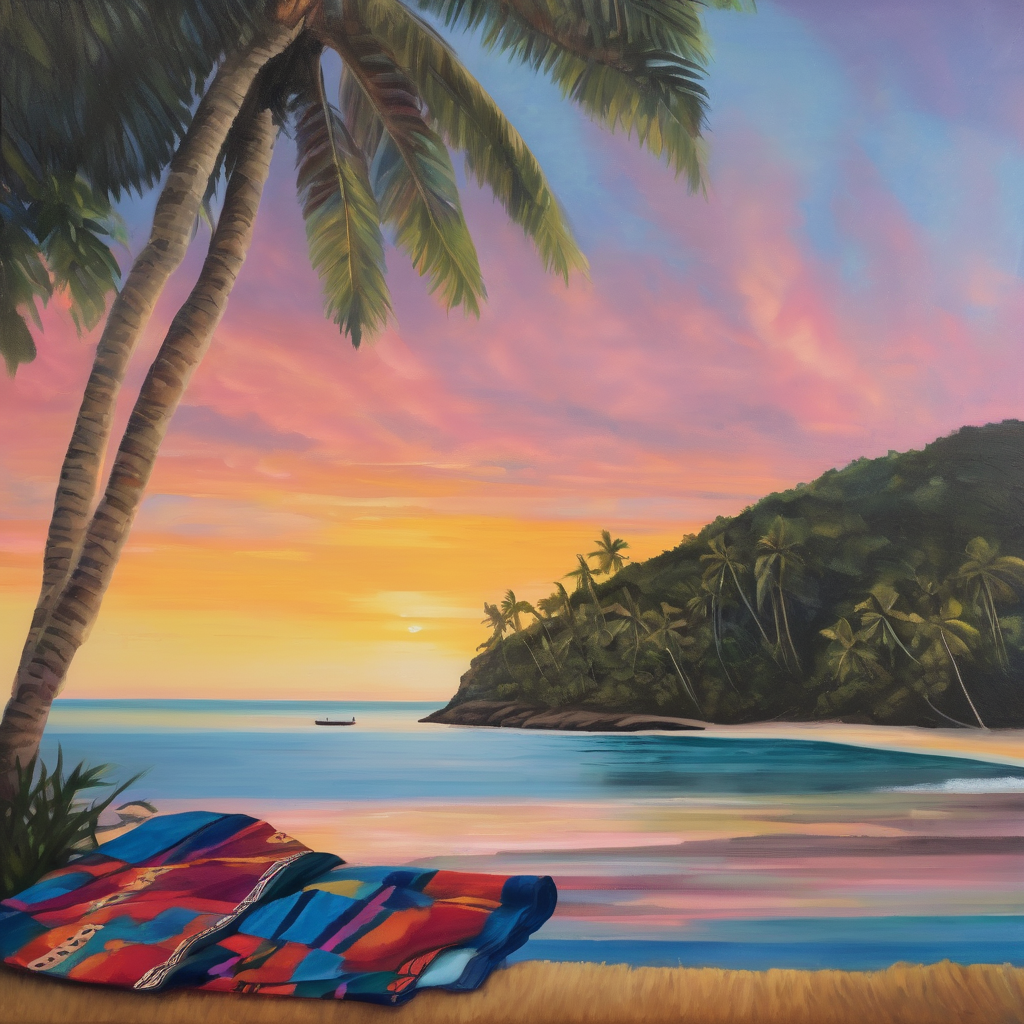When Susie Elliot first picked up a brush, she could hardly have anticipated that her artwork would become a powerful means of expressing the complex truths of Fiji’s historical and contemporary landscape. Her artistic journey began far from her homeland, in the Philippines, where she took formal classes in Chinese brushwork—a decision that ignited her enduring passion for art.
After raising a family in New Zealand, Elliot returned to her creative pursuits, enrolling in art school when her children reached high school age. “When my children were old enough, I thought, this is my time,” she reflected. This marked the beginning of her serious study of art.
Recently, Elliot showcased her work at the KUDRU exhibition in Suva, where her two diptych oil paintings caught attention for their bold, political themes inspired by Fiji’s struggles, particularly recalling the traumatic 1987 coup led by Prime Minister Sitiveni Rabuka. The paintings, while visually similar, unveil layers of meaning associated with Fiji’s coup culture and the militarization of society.
Elliot described the intricate process involved in the creation of her paintings. “There’s a lot of preparation that goes into the canvas before the paint goes on,” she noted, explaining the difference between oil and acrylic mediums in her work. The themes within her paintings speak to an intimate connection to Fiji’s past and emphasize the change she experienced since the coups, recalling a time when Fiji felt like a paradise.
“Everything stopped almost literally in 1987,” she recalled. “Those born after that only know today’s Fiji. But it wasn’t always like this.” Her diptychs allude to figures and animals imbued with coded messages—an approach she employs intentionally to provoke thought and dialogue about Fiji’s future.
Some striking elements in her paintings included images of dogs, symbolically rendered in military colors, inspired by Rabuka’s remark regarding drug-related issues. “I took that and ran with it,” she explained, connecting the dogs not only to a sense of military dominance but as a playful yet poignant nod to the realities of war.
Elliot’s message extends beyond mere artistic expression; her works are calls for acknowledgment and reflection on the kind of legacy the upcoming generations will inherit. She encourages the youth to engage actively in determining their country’s future, emphasizing the courage required to express one’s thoughts through art.
“Art is about courage and the willingness to express what lies inside,” she said, offering encouragement to emerging artists who may be hesitant to voice their opinions through their mediums. The vibrant art scene in Fiji, represented by artists like Elliot, reflects a rich tapestry of expressions emerging from personal stories tied to Fiji’s cultural heritage, signifying a collective journey towards healing and awareness.
As the art community in Fiji continues to grow, the influential narratives of artists like Susie Elliot inspire hope for a brighter future—one where creativity flourishes and critical conversations about the country’s identity and history persist through the power of artistic expression.
